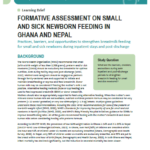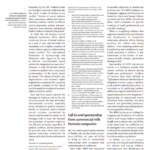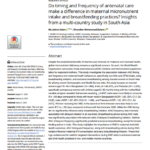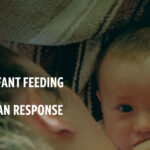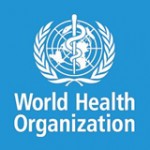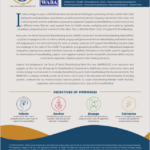Early and exclusive breastfeeding for the first six months of a child’s life reduces child mortality and has health benefits that extend into adulthood. Breastfeeding benefits not only the child but the mother and family also, as it is free of cost and reduces the risk of infection in newborns, enhances neurodevelopment, and reduces the risk of acquiring certain non-communicable illnesses in adulthood. Breastmilk substitutes and animal milk not only lack essential immune-building components, they also expose the infant to an increased risk of infection and morbidity.
44
percentage of infants under six months of age who are exclusively breastfed (2015-2020)
800k
number of infant deaths that can be attributed to suboptimal breastfeeding practices
20
percentage reduction in risk of newborn death when breastfeeding is initiated within one hour of birth
All data on this page represents the most recent data available, unless otherwise noted. Please visit our Newborn Numbers page and download the Excel spreadsheet to explore the data further.
More information
Human milk feeding and breastfeeding have immediate and long-term benefits for all babies, including the preterm and low birth weight. Feeding small and sick newborns is challenging because of immaturity or medical conditions that interfere with effective oral feeding. Moreover, small newborns are further affected by variation in the gut microbiome and increased risk for infections.
They often need care in special or intensive care units, which commonly results in separation from their mothers, creating additional challenges to feeding. Care for small and sick newborns must include the promotion of safe and optimal use of human milk (with cup or nasogastric tube), and subsequent transition to breastfeeding, to achieve adequate gain weight and growth in these infants. Staff caring for these babies require specific knowledge and competencies, as well as sufficient supplies for feeding small and sick newborns.
Studies have shown that Early Total Enteral Feeding (ETEF) is safe and decreases the incidence of infections, including necrotizing enterocolitis (NEC), enhances cognitive development, reduces days on parental nutrition, and helps shorten the time to achieve full feeds. Own mother’s milk is the first choice for such babies. Delayed initiation of and infrequent breastmilk feeding can affect the establishment of milk supply and result in decreased milk supply and unnecessary use of breast milk substitutes. If the small baby cannot suckle at the breast, it is important to express, starting with the colostrum within an hour of birth to support the onset of lactation. Such mothers should continue to express every 2-3 hours for eight or more sessions during the day, including at night for ensuring no disruption of lactation and milk supply. To achieve low risk of contamination of expressed breast milk, it is very important to ensure hygienic milk collection, storage, and handling practices.
When own mother’s milk is not available, WHO and UNICEF promote the use of pasteurized donor human milk (PDHM) as the second option in preference to formulas. However, WHO has specified that, this “recommendation (is) relevant for settings where safe and affordable milk-banking facilities are available or can be set up;” The use of formulas as the next option requires counseling the mothers and families on their proper and clean preparation. The use of preterm formulas should only be recommended when the VLBW baby is not gaining weight on standard formula and if it can be afforded. For babies smaller than 1500gm, the WHO recommends adding vitamin D, calcium, phosphorus, and iron supplements.
Key resources
- WHO Infant Feeding Recommendations
- Early Initiation of Breastfeeding to Promote Exclusive Breastfeeding
- Coronavirus disease (COVID-19): Breastfeeding Q&A (WHO) + Scientific Brief
- Lancet Breastfeeding Series (2016)
- WHO Resources on Breastfeeding
- Breastfeeding Advocacy Toolkit
-
WHO recommendations for care of the preterm or low-birth-weight infant (2022)
